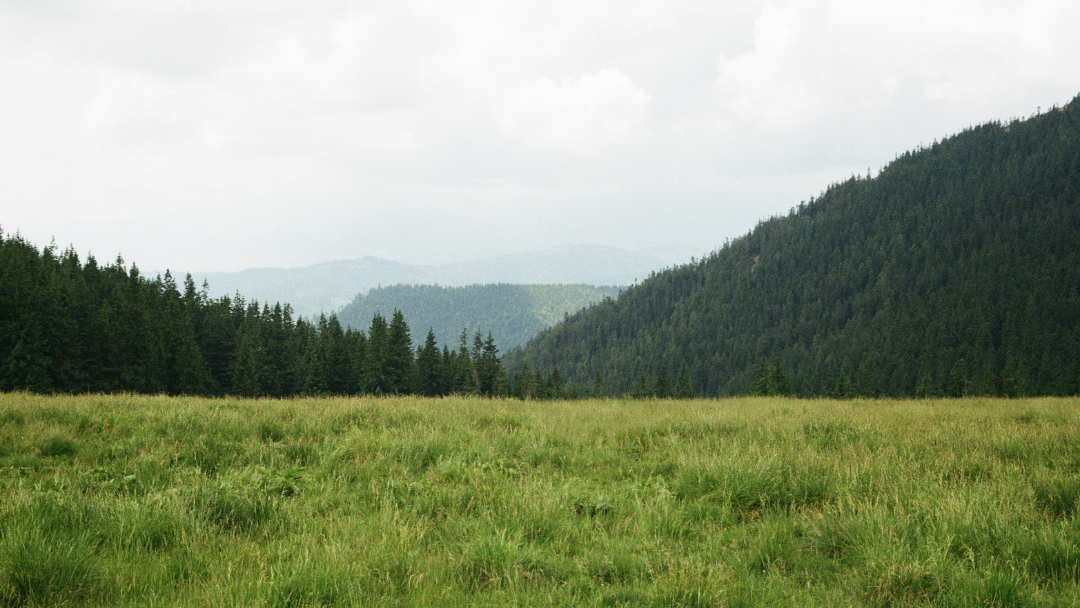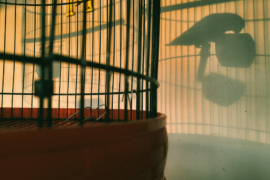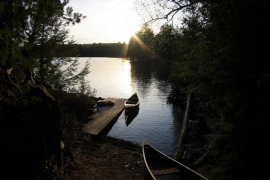AFTER THE FIRE, BERTHA AND I MOVED INTO THE GROUNDKEEPER’S COTTAGE AT THE GARDEN’S EDGE. Thornfield Hall itself is little more than a blackened ruin, particularly the upper floors. However, we rescued enough beds and tables, along with a few armfuls of fine linen, to outfit the place to our liking.
I keep a kitchen garden, an irregular patch of honest vegetables amid the wilds into which the rest of the grounds have degenerated. This began only a few days after the smoke cleared from the air. First the fine English roses asphyxiated; then the lime trees rotted from disease. Then the columbine shriveled and dried, its blossoms blowing away in a puff of fragrant pink dust. A strange growth took over, wild and thick, dark green nearing black—scrub and heather and strangling vine. In the months that followed, the trim lawns grew into a thick wood, full of furtive sound and movement. When I work in the vegetable garden past sundown, Bertha keeps off the night by playing a rough bone flute she whittled—a most unusual, self-taught music.
Bertha has no patience for vegetables, I’m afraid. Every few days she marches off into the undergrowth with one of Mr. Rochester’s antique hunting rifles. I know not what sort of fauna she finds there; what she catches she stuffs in a bag and skins and cleans out of my sight. The meat is dark and tough and responds best to cooking for an entire day in the company of as many herbs as I can find. On occasion I have dared to look at the refuse pile for some identifying remains of the poor creature we have eaten for dinner: coarse feathers, oily and black; small bones mixed with putrid fur;dark green scales, scattered amid the vegetable peelings like pennies coated with verdigris.
Every morning, Bertha likes to go for a jaunt on foot about the nearby moors, a pastime I have grown fond of myself. It was especially foggy this morning, however, and I only wanted to hide from the cold mist burning theshutters. When Bertha woke and began to move about, I watched her sleepily, and marveled at the ease with which she moved, although she is far taller and heavier than me. She dressed, as she is used to doing now, in a pair of Mr. Rochester’s old breeches, one of his shirts, and a heavy coat. She tied her mass of black hair, which she is fierce about never combing, out of her eyes with a bit of rag. Seeing that she was ready to leave, I scrambled to my feet and donned one of my plain black dresses. I knew that if I wasn’t ready directly, Bertha would set out without me, and I much dislike being left alone these days.
We took the overgrown garden path around the charred east wing of Thornfield Hall and crossed the main road, to the uninhabited fields where we could tramp freely, to open country. Bertha has always been stronger and livelier than I, and she marched steadily to some internal and relentless beat, her nosepinkish from the cold. With the weak morning light failing to penetrate the thick mists, it was hard to see anything beyond the ragged gray shapes of the heather at our feet. No bird sang, but it has been silent here for many months.
We had walked out beyond the first stile before I could catch my breath enough to speak of my troubled heart. “Bertha,” I said. She halted. “I have been thinking.” I took a deep breath. “I think it shall be today.”
Bertha looked at me sharply. As always, her black eyes seemed to charge toward every secret room within me and break their rusted locks.
“I know,” I said, meeting her gaze.And then I do not know what came over me. My decision made, I, Jane, meek Jane, threw myself upon her and dragged her to the soaking earth.
What strange and wild delights in which we partook there, I shall not tell, reader, for we were wrapped in freezing mist as if God saw fit to shield us from misunderstanding eyes. I will only tell you that after our wet clothes were drying by the fire in our little home, I dressed and took the ring of keys from beneath the stone where, up until this day, I have hidden it. Bertha sat naked before the hearth, playing on her bone flute, her large eyes watching.
One room on the ground floor of Thornfield Hall was spared by the flames. I went there now, unlocked the door, and heard a groan. There he was, the great man, sitting in a chair by the fire I have lit for him daily for the past year, the stump of his hand cradled to his chest. I trembled to see him, then felt again the wet press of the earth against my back, Bertha’s hair on my lips and her wild heart beating against my ribs, so strong, so strong!
“Jane,” Mr. Rochester said. “Jane? Is that you?”
“Yes, sir,” I said. He struggled briefly, but the chains, as always, kept him bound to his chair. “Be good now,” I said. “I am coming near.”
“Oh Jane,” he said. “Please…please…”
Every day, he begged like this for me to free him. I never thought I’d bear to. But now I kneeled at his side and unhasped his manacles.
“Stand, sir,” I said. “You are free.”
At first, he seemed not to believe what I had done. He moved his arms and legs only tentatively; but then, when he found himself burdened no longer by the chains, he rose to his full height. For a moment I was afraid, but of course he could not see me, blinded as he’d been in the fire. I pulled back to a corner of the room to let him pass. In truth, he hardly seemed to know that I was there.
He felt his way forward. Finding the door open, he laughed softly, then went out into the ruined hall. He stumbled out of the front door, his feet finding their way along those familiar steps, but when he reached the bottom and stumbled forward, he was halted by the trees of the forest that had grown over what was once the front lawn.
“What has happened?” he said. “These are not the grounds as I knew them.” His head moved from side to side, like an enormous bloodhound’s. “Where are the footmen, the stableboys? Will you give me provision of a carriage?”
“They have gone, sir,” I said, “and long ago. You must travel on your own two feet, I’m afraid.”
The great man sighed. “Very well, then,” he said. “In which direction is the road?”
Gently, I took his shoulder and turned him toward the road and the fields where we had walked that morning. “There,” I said. Then I gave him a sharp push. I shouted, “Go quickly! Go!”
He heard the urgency in my voice, for he broke into an ungainly gallop. After a few steps he fell, then got up, and kept running. He reached the edge of the property and stepped onto the road. Only then did I take the hunting rifle from my back, raise it as Bertha had taught me, and take aim.
Reader, we buried him. A quiet funeral he had: Bertha and I alone were present. We laid him to rest in a clearing in the forest, beneath a tombstone fashioned from a wooden headboard. It bore no name, just “Sir” in crude letters that Bertha carved.
In the cottage, Bertha made for each of us a bundle of clothes and food. She strapped the rifle on her back, and gave me the pistol. Then, over the next few hours, we hauled our firewood into the ground floor of Thornfield Hall, piling it around the doors of the rooms that had survived. For months, with characteristic patience, Bertha had been cutting heather and drying it in a pile, waiting for this day and my decision. We mounded this too over the ruined floors. I let Bertha light the match.
We stood and waited. First a flicker, then a flame, then a flood. A wave of heat and light, climbing higher and higher. Its ardency seeped into my body. I fancied I was yet another flame, dancing with wild joy. But another heat, even more powerful, overwhelmed me like a larger wave when Bertha took my hand.
The fire painted her face and hair and fierce grin with crimson light. Her glowing profile pointed toward the woods, the road, the fields beyond. And beyond them? I could not guess, but the thought of so much darkness delighted me.
And so, the fire at our backs, hand in hand we set off toward the night.
LAUREN SCHENKMAN’s journalism, fiction, and translations have been published in The New York Times Magazine, Atlas Obscura, Tin House, TED Ideas, Granta, The Hudson Review, Writer’s Digest, Electric Literature, and The Kenyon Review, among other places. She has co-produced radio stories for Afropop Worldwide and Public Radio International’s The World. She was a reporter and editor at Science magazine and a Fulbright grant recipient in Nicaragua. You can read more of her work at laurenschenkman.com.
Like what you’re reading?
Get new stories or poetry sent to your inbox. Drop your email below to start >>>
OR grab a print issue
Stories, poems and essays in a beautifully designed magazine you can hold in your hands.
GO TO ISSUESNEW book release
China Blue by Catherine Gammon. Order the book of which William Lychack Jeffries calls “a fiery declaration of all that is inexpressible about desire and loss and the need to find a home in a world in which even the most solid and real of things feel often less than completely solid or real.”
GET THE BOOK



